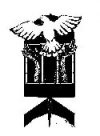


by David Heller
To mark the nuclear weapons Abolition Day, October 1, 2000, Forum Voor Vredesactie and Voor Moeder Aarde (For Mother Earth) invited photographers to join their citizens' war crimes inspection at Kleine- Brogel Air Force Base, Belgium. The intention was to obtain photographic evidence of the presence of the NATO B-61 nuclear weapons stored at the base. As well as the mass inspection on October 1, an action camp was set up near the base on September 27. The camp enabled at least 20 groups of people to enter the base for unannounced inspections. Taking advantage of lower security these few days, two of these groups remained undetected for over two hours. Inspectors included parliamentarians, celebrities, people from a range of backgrounds and anti-nuclear activists from several European countries. There were also a number of activists who joined the inspection en-route from the protests against the IMF in Prague.
Inspectors were able to photograph the F-16 jets that would drop the bombs, and the concrete aircraft hangars now hardened for nuclear weapons storage. However, the police confiscated all cameras that were taken into the base.
In total, 80 arrests were made for trespassing on a military base and photographing a military base; 12 in the days preceding the October 1 mass inspection, which resulted in 68 more arrests. A number of those arrested were blindfolded and made to lie on the floor of police vehicles as they were driven out of the base, to ensure that they were not able to carry on with their inspections while under arrest. Several activists were also beaten or kicked. It seems that this form of "justice", delivered by the Belgian Air Force police, has arisen as official prosecutions of activists are unlikely to result from the inspections. The political nature of the offenses means that any court case would have a high profile in Belgium, and the authorities could not afford the publicity that a trial would give to the presence of these "secret" weapons.
Despite violence and intimidation from the police, the mood after the mass inspection remained defiant. The time spent waiting to be released from police custody was used to share personal experiences of arrest, as well as the information about the base that had been gathered during the inspection. Details of police brutality were also compiled, in order to submit a formal complaint.
In England, a team of citizen crime investigators were obstructed in the performance of their duty on October 1 by uniformed men and women with guns at the Aldermaston Atomic Weapons Establishment. No arrests were reported as inspectors climbed high fences and otherwise scrambled about to photograph main areas of the base, entry gates, and the chalk outlines of nuclear victims in the roadway.
In the Netherlands, 55 citizen inspectors entered the air force base at Volkel to collect evidence of contraband nuclear weapons stored there. The inspectors were arrested and 15 were told to appear in court on March 7, 2001.
For more information about organizing citizen weapons and war crimes inspections, contact Voor Moeder Aarde (For Mother Earth), Maria-Hendrikaplein 5-6, 9000 Gent, Belgium. Tel+32-9-2428752; international@motherearth.org
